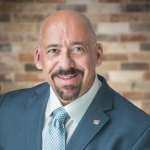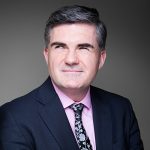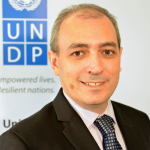Even before the Covid global pandemic, the delivery of the UN Sustainable Development Goals was behind schedule. Since then, the gap has widened as governments around the world are grappling with post-Covid recovery, increased demands for social services and rising inflation.
This event outlined the structural issues in funding for the SDGs as governments are tightening their budgets and unable to provide additional funding. The private sector, including individuals and businesses, will therefore need to play a larger role in international global development and progressing toward the SDGs.
The event included:
- Marcus Neto, Director, Finance Sector Hub, United Nations Development Programme
- Madlin Sadler, Chief Operating Officer, International Rescue Committee
- Neil Heslop OBE, Chief Executive Charities Aid Foundation
- Ilana Ron Levey, Managing Director, Public Sector Gallup
- Ted Hart, President and Chief Executive, CAF America and CAF Canada
A few highlights from the event:

Ted Hart
- ‘The Bill & Melinda Gates Foundation’s Goalkeepers Report stated much still needs to be done and noted the significant setbacks the SDGs have experienced caused by overlapping crises. However just as they struck an optimistic tone about the opportunities that exist to accelerate progress, so does the World Giving Index.’

Neil Heslop OBE
- ‘Against the backdrop of extraordinary challenges in the world, individual generosity is on the rise. We’ve seen the largest annual increase across the World Giving Index in 12 years. What that translates to, is an additional 500 million people around the world answering positively to one of those key questions about helping a stranger, contributing financially, or volunteering.’

Marcus Neto
- ‘During Covid-19, global wealth increased by 20 per cent and it stands at 430 trillion dollars. The SDGs is 1.1 per cent of global wealth – it is nothing. It is not about lack of money, the problem is there is plenty of money, both in the hands of the private sector, in the hands of philanthropy, in the hands of government – but they are not aligned. It doesn’t flow geographically or towards sustainability issues. We need a systemic shift in which we are able to come together and leverage each other’s finance.’

Madlin Sadler
- There’s a very strong need when you look at these numbers and you say – how are we going to do this? It’s actually not how many people are we actually going to touch and serve, it’s how do we change the human experience and that means you’ve got to scale, but you’ve got to get impact. Doing that takes innovation, it takes some hard choices on cost-effectiveness and efficiency which used to be something that we struggle to talk about in our sector, because how can you put a price on human life or how can you put a price on an intervention? We’ve done a huge amount of work on stopping thinking about inputs and to really starting think about outcomes.’

Ilana Ron Levey
- ‘The strength of a community is truly important to the human condition. I think one of the most interesting insights that we’ve seen is that trust between community members is key and whether or not you trust strangers and neighbours has a lot to do with your own well-being and how thriving your community is. It’s so important to measure what matters, looking at people’s lives and opinions, and opinions of how their lives are going. It’s really important to also understand from the perspective of beneficiaries of philanthropic funds – is it having the desired impact for them and are we fundamentally funding the right thing.’
Watch a record of the discussion below:
Zibran Choudhury is Communications, Partnerships & Membership Manager at Alliance magazine






Comments (0)